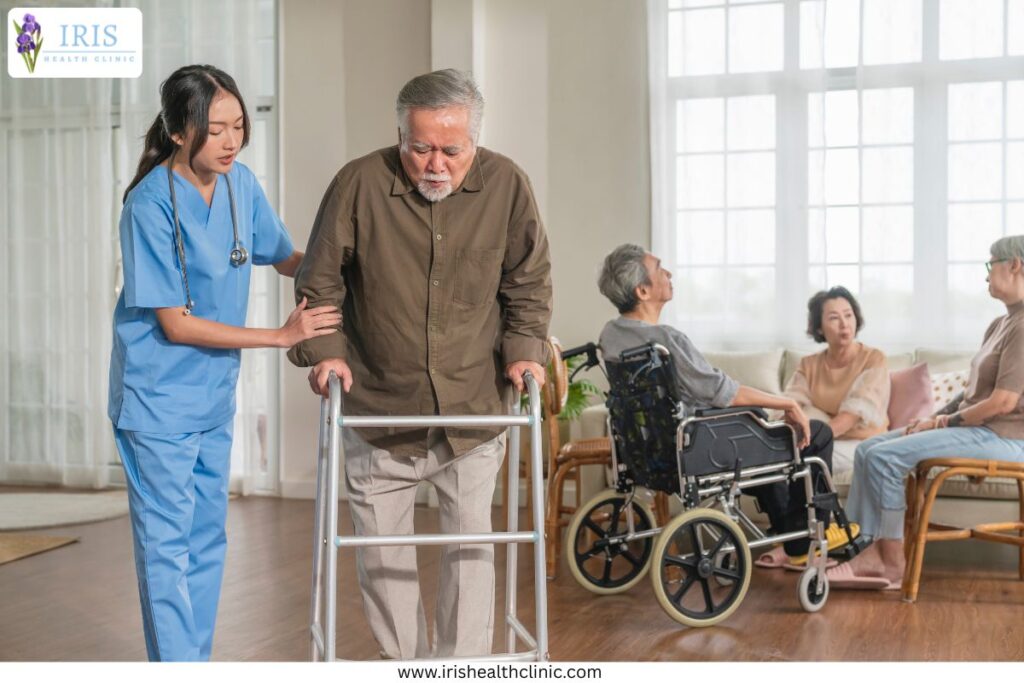Recent statistics show that by 2040, the population of older Americans (those 65 and above) will have at least doubled. This has seen an increased number of elderly people in need of specialized assistance after hospitalization, surgery, or other medical procedures. In many cases, recovery of older people extends beyond the hospital walls. They require further treatment on a physical, mental, and emotional level. And it is here that extended health care becomes very important in long-term recovery and quality of life.
Understanding the Importance of Extended Care
As seniors are discharged, they might still need organized medical assistance. It is during this transition that extended care rehabilitation is important. It can assist older adults to gain strength, mobility, and independence. Besides, long-term care promotes safety and prevents hospital readmission.
Extended care services are dependent on individual requirements and traditionally may involve physical therapy, occupational therapy, skilled nursing, etc. These services assist the elderly in re-establishing a routine while preventing complications. Patients are provided with personal care by trained professionals in a supportive atmosphere.
Services Offered in Extended Care Programs
A well-designed center for extended care offers more than just medical supervision. It includes therapeutic services that treat both physical and emotional challenges. Seniors benefit from therapies like EMDR, Dialectical Behavioral Therapy, and trauma-informed care.
The goal of extended care is to provide a continuum of support that addresses every area of recovery. Whether it’s helping someone walk again or aiding emotional healing, extended care professionals are equipped to manage diverse conditions and health goals.
Who Needs Extended Health Care?
An extended care clinical setting is more beneficial to some groups. These are patients who had strokes, surgery, or serious conditions. The others may be having a problem of mobility or loss of muscles with age.
An effective long-term care facility not only provides nursing oversight. It comprises treatment services that heal physical and emotional problems. EMDR, Dialectical Behavioral Therapy, and trauma-informed care are beneficial to seniors. The aim of the prolonged care is to offer a continuum of assistance covering all aspects of recovery.
Benefits of Long-Term Care Services
A long-term care center provides seniors with ongoing support that promotes healing. Unlike short-term hospital stays, long-term care offers routine and structure. This consistency improves physical recovery and reduces mental health risks like anxiety and isolation.
Furthermore, long-term care centers help patients develop confidence. Through rehabilitation, they learn to complete everyday tasks, regain independence, and enjoy a better quality of life.

The Role of In-Home Extended Care
Extended care may even be available to the seniors who are home-bound. Home-based services include physical therapy, medication, and emotional management. The programs have the advantage of professional treatment, but trust patients to heal in the comfort of an environment they know.
In-home extended health care guarantees that treatment plans are not rigid but flexible according to the pace of the person. It also reduces the stress that might accrue due to adaptation to a new environment, which can greatly enhance recovery.
Rising Popularity of Extended Care in Milwaukee
The demand for extended care in Milwaukee is growing. With the elderly population increasing in this area, there is an increase in the number of families seeking quality and humane care services.
Milwaukee facilities are currently being expanded to accommodate such demands. They pay attention to patient comfort, personal safety, and improvement through the combination of evidence-based practices and individual care plans. These services are particularly beneficial to families who desire to give the finest support to loved ones who are aging.
Addressing Mental Health in Recovery
Healing does not just occur physically. Older adults face emotional and psychological problems. In post-hospitalization, depression, anxiety, and memory loss commonly occur. Fortunately, the therapy and support groups can be experienced in extended care rehabilitation facilities.
Social contact, daily routine, and interesting activities are also essential to emotional recovery. These are provided by extended care programs, in the form of interactivities with therapies, hobbies, and companions.
How To Choose the Right Extended Care Center?
When selecting a center for extended care, families should consider several factors. First, ensure the facility is licensed and accredited. Next, review the qualifications of the staff. Experience and empathy go hand-in-hand when treating seniors.
Moreover, find a center that offers both physical and emotional care. Programs should include therapy, medication support, and lifestyle guidance. Involving family in the care process also helps ensure smoother transitions and lasting recovery.
The Advantage of Comprehensive Extended Care
Families ought to take into account multiple factors when choosing an extended care center. First, check that the facility has a license and is accredited. Then, scan the staff qualification. Treating the elderly involves a synergy of experience and empathy.
In addition, identify a facility that gives both physical and emotional attention. There should be therapy programs, medical support, and lifestyle counseling. Even small changes, like installing grab bars or offering regular social activities, can make a major difference. Seniors thrive when they feel safe, heard, and understood.
Conclusion
Choosing extended care in Milwaukee is a powerful investment in a senior’s recovery and future. With time, guidance, and care, seniors can rebuild their strength, return to their routines, and live more independently.
The long-term benefits go beyond physical recovery. Emotional strength, improved confidence, and a better quality of life all result from structured, compassionate care. Contact Iris Health Clinic today and explore how their comprehensive care programs can support lasting recovery.

